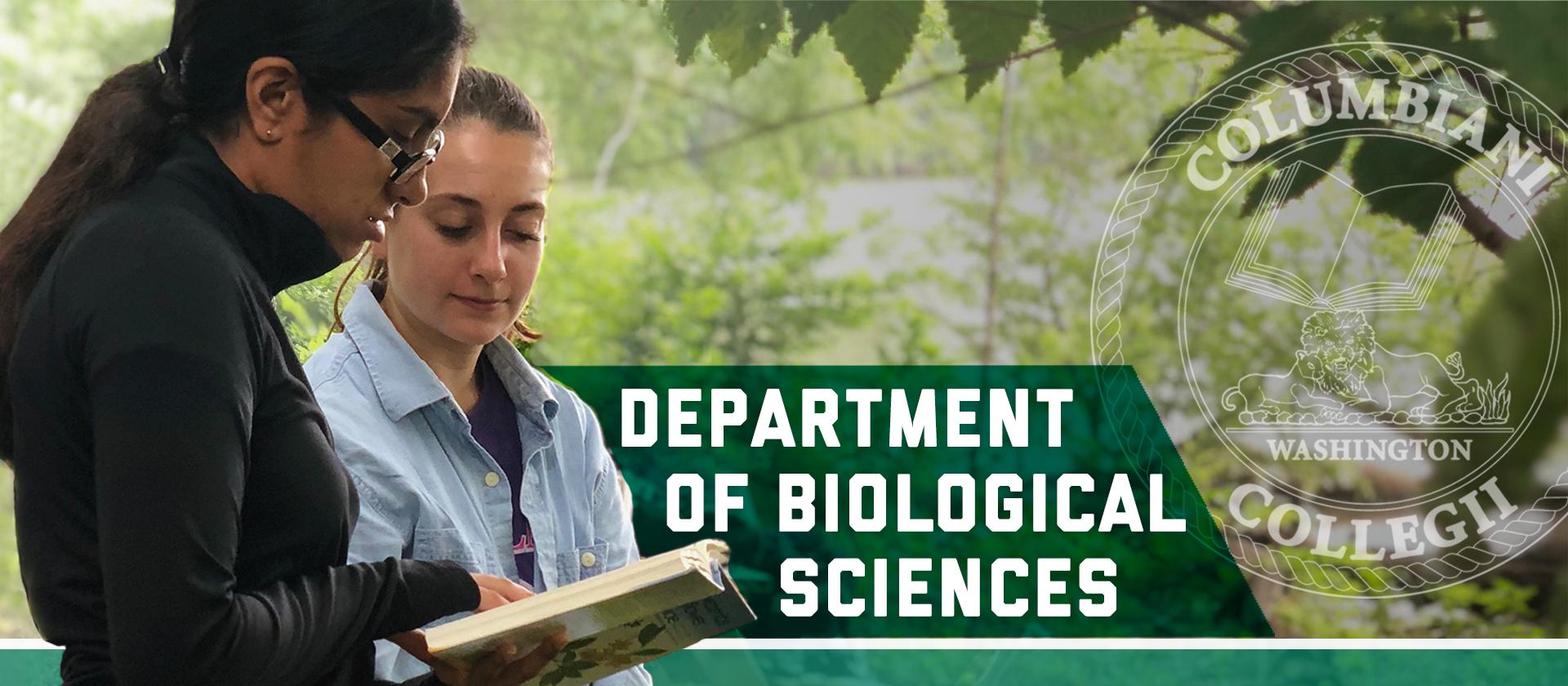Home
TRAILBLAZERS IN learning
and DISCOVERY
Providing opportunities in the lab, classroom and field
Who We Are
Whether they learn in the lab or at one of dozens of agencies and museums in Washington, D.C., GW students have every opportunity to make biology their own. They can anchor their studies in the Smithsonian National Museum of Natural History with a collaborative program in systematics, or follow their passions to fieldwork in the Amazon Basin, the Gobi Desert or islands in the South Pacific.
Students and researchers alike enjoy the university’s cutting-edge research spaces and the Wilbur V. Harlan Greenhouse, an open-air classroom that also grows plants for active research projects. Beyond the Foggy Bottom Campus, biology faculty members lead community-service projects and collaborate on one-of-a-kind initiatives with fellow scientists at institutions like the National Institutes of Health and the Food and Drug Administration.
Well-Rounded Education
In the Classroom
In The Ecology and Evolution of Organisms, students create personalized service projects that link social ills to their larger cultural and ecological contexts. Student topics have ranged from rural dog rescue to oyster conservation.
In the Community
Associate Professor of Biology Keryn Gedan brings her student researchers to the Eastern Shore marshes of the Chesapeake Bay, where sea level is rising at three times the global average. Students spend summers in the tidal marshes collecting samples and designing their own approaches to tackling local ecological problems.
In the Lab
In Professor of Molecular Biology Ioannis Eleftherianos’s lab, a team of undergraduate, graduate and postdoctoral student researchers is putting the common fruit fly under the microscope. Their results could hold the key to finding a Zika virus vaccine — and an answer to other global health dangers like microcephaly.
In the Summer
Every summer, a small group of undergraduates funded by the Wilbur V. Harlan Research Fellowship conduct independent research. Over the course of 14 weeks, they receive training and mentoring from graduate students and faculty alike, culminating in the Harlan Poster Session where they present their findings.
Biology by the Numbers
$8 Million
Awarded in Research Funding
4,000+
Hours of Community Service Performed by Biology Students in the D.C. Area Each Year
100+
Years of Collaboration with the Smithsonian National Museum of Natural History
"Biology is not just found in a textbook. … The food we eat, the cars we drive, the diseases we have — everything we interact with is biology."
Tara Scully
Associate Professor of Biology
Director of Sustainability Minor







